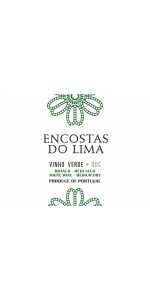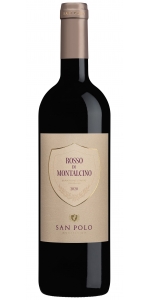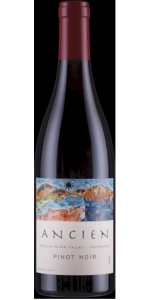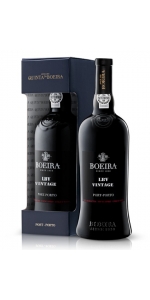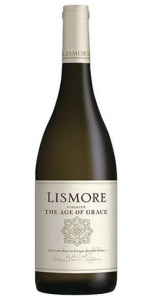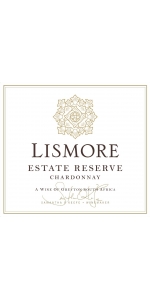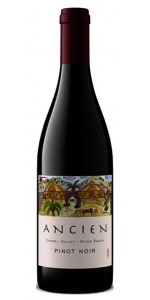Gundian Albarino 2021
6 bottles with free shipping for: $132.00
12 bottles with free shipping for: $240.00
| BUY MORE! SAVE MORE! | ||||||||||||||||||||
|
| Country: | Spain |
| Region: | Rias Baixas |
| Winery: | Adega Valdes |
| Grape Type: | Albarino |
| Organic: | Yes |
| Vintage: | 2021 |
| Bottle Size: | 750 ml |
Gundián is a local surname & the name of several Galician villages (3 in the area) as well as a famous bridge in Galicia - thus the bridge graphic on the label. The Gundián Bridge, also known as the Gundián Viaduct, is a bridge that spans the Ulla river pass, on the old railway line between Orense and Santiago de Compostela.
Clean and bright wine, straw yellow color with greenish flashes. On the nose, it has fruity and floral aromas of high intensity, especially apple and stone fruits (apricot). In the mouth, the freshness and youth of the Albariño stand out with a well balanced acidity which makes it savory, sweet and glyceric.
Adega Valdés is a reflection of the vocation and work of the Valdés family who for more than 30 years has been the owner of twenty hectares of vineyards on the banks of the Ulla River. In 2001, with the extension of the Rías Baixas Designation of Origin to that area, the current winery was founded, combining the family tradition with the most avant-garde winemaking techniques.
All the wines of Adega Valdés are estate grown. The quintessential grape cultivated at the property is the "albariño", the core character of its first brand, Gundian. The winery also owns a significant area dedicated to the “treixadura” variety, which allows to produce multi-varietal wines of different aromatic intensity.
The Valdés family vineyards are located in the lands of Vedra, at the foot of the historic Gundian Bridge, between Monte de las Roxas and Castro San Miguel. This privileged area belongs to the Ulla subzone, within the Rías Baixas Designation of Origin.
Palacio del Burgo Rioja Blanco is made from 100% Viura.
The wine shows a brilliant pale yellow color. The nose is elegant and very fruity, with straw and pineapple notes. The taste is intense, being extremely fruity with fresh balanced acidity.
Palacio del Burgo White Wine has been created to accompany all kinds of meals and be the perfect glass of wine to illuminate those memorable low light encounters. This wine is the product of the winemaker's efforts to highlight the fruit. The structure and mouth feel of the wine compliment and balance the fruit.
Enjoy it with white fish dishes and seafood.
Siegel Gran Reserva Viognier is made from 100 percent Viognier.
The grapes for the Gran Reserva wines are the product of a careful selection of Siegel's best vineyards in the Colchagua Valley, harvested by hand, and revealing a strong expression of the land.
Gran Reserva Viognier was aged for 6 months in French oak barrels with lees stirring to provide complexity and structure. The wine shows a pale yellow color with green tones. The nose offers intense notes of white peach, grapefruit and floral aromas. On the palate the wine is balanced, persistent and presents excellent balanced acidity.
Salette Floc Gascogne Blanc NV is made from 1/3 of Armagnac and 2/3 Colombard fruit juice
Intense fruity and floral aromas. Round, fresh and fruity in the mouth. Almond, jasmine, roses, honey, black fruit and condiments are characteristic notes.
The alcohol percentage is between 16–18 % vol. After blending, the Floc is kept for 10 months in the cellar of the producer and must be approved by a committee of experts before it can be sold under the appellation Floc de Gascogne.
It is used as an aperitif most often, but also as a dessert drink. It should be consumed while cool, and is suberb on ice.
Maison du Midi Chateauneuf du Pape Rouge is made from 84% Grenache, 11% Syrah and 5% Mourvèdre.
Maison du Midi Chateauneuf-du-Pape is designed to be a very fruity and fresh CDP with structure. Different flavors of red and black fruits with a hint of pepper and spice notes.
Review:
"The 2023 Châteauneuf du Pape comes from the Brotte family (where the fruit is sourced) and is 90% Grenache and 5% each Syrah and Mourvèdre. Already bottled, it has a juicy, upfront, undeniably delicious style that brings both red and black fruits, some peppery, herbes de Provence-like nuances, medium to full body, and an upfront, ready-to-go style."
- Jeb Dunnuck (Importer Highlight: Fran Kysela ; July 2024), 91 pts
Valminor Albarino Rias Baixas is made from 100 percent Albarino.
Albariño is a Portuguese grape, native to the Miño River region, which separates Galicia & the Rias Baixas DO from Portugal. Albariño has a characteristic citrus aroma & high acidity.
Valminor Albarino presents a yellow straw color. On the nose, the wine shows a wide fruity range of aromas, with notes of fresh grapefruit, apricot and melon. In the mouth, Valminor combines fruity flavors and freshness with a rounded acidity, resulting in a balanced wine that boasts an opulent taste and slight spritziness.
Review:
"Elaborate swirls of lime, lemon, passionfruit and white peach entice the nose whilst the pristine purity of acidity and mineral freshness disarms the terroir-driven palate. Salty, linear and tangy, demonstrating Atlantic style at its best."
- Decanter World Wine Awards 2025, 97 pts and Platinum Medal
Lima Adega Vinho Verde is made from 80% Loureiro and 20% Trajadura
All Vinho Verde (or green wines – meaning young, not green in flavor) are the best in the first 18 months. The wine is fresh, crisp, lively with a touch of spritz. It has some very interesting aromas of stone fruit and lime.
Portuguese Vinho Verde with a screwcap!
Loureiro: Loureiro is a white vine variety grown in the northern region of Portugal that produces an aromatic bay leaf scent. The pale-skinned variety is used to make the Vinho Verde white wine that of the Minho region.Traditionally, Vinho Verde wines include Trajadura and Pederna, but varietal Loureiro wines are becoming increasingly popular. The Loureiro variety is also grown in smaller batches in Galicia, which sits to the north of border of Spain. Loureiro variety grapes are high in acid and is sometimes called "Branco", "Marques", or "Redondo". In this region, the variety is used to create the Rias Baixas white wine, and is typically blended with the variety, Albarino. The wine works perfectly with fish, grilled good, sushi, shellfish, salads or fruits. The wine also pairs nicely with clams and white wine or fresh spring rolls. The variety is high in acidity and is typically bottled with a shot of carbon dioxide to maintain the quality of the wine and to give it a nice, bubbly texture. The taste of the wine includes aromas of citrus, tropical fruits and a mineral tone, and also has hints of floral aromas.
Trajadura: Trajadura is a white grape varietal also known as Treixadura. Trajadura originates from Portugal, particularly the Northern region. Trajadura is most famously used in Portugal's Vinho Verde wine, but Trajadura is also utilized in blends to add fullness and brisk citrus flavor. The low acid content in Trajadura, combined with a higher alcohol content make it an ideal and rare blending component in this particular climate region. When Trajadura is blended with Loureiro and Albarino it is the perfect balance for Vinho Verde. In Spain, Trajadura is called Treixadura and is most commonly found n Rias Baixas and Ribeiro. Spain also takes advantage of the blending characteristics while combining with Albarino, Abillo, Lado, Macabeo, Godello, and Torrontes. The Trajadura vines are recognized by average sized bunches that are dense with moderately sized berries. Trajadura ripens early, so to keep the acidity, it must be harvested rather early. The flavor profile for Trajadura will consist of apricot, peach, apple, lemon, and pear.
With low alcohol, it is best as an aperitif or with seafood. Definitely a summer drink.
Bright and glossy ruby red in color. On the nose it reveals aromas of small fresh berries and a trace of sour cherry, melded with hints of blackberries and black cherries, followed by a hint of vanilla. A fragrant wine with satisfying intensity. On the palate it is warm, smooth and a medium-bodied with finely-balanced tannins. Dry and sinewy yet fresh with a persistent, aromatic finish.
It naturally accompanies dishes that are typical of Tuscan cuisine with its bold, authentic flavors, such as pasta and risottos made with mushrooms or truffles, pork, grilled meats and medium-matured cheeses.
Review:
Notes of ripe cherries, dried flowers and walnuts with hints of anisette and licorice. Medium- to full-bodied, compact and dense with creamy tannins and steady acidity. Weighty and structured. Drink or hold.
-James Suckling 91 Points
Ancien Pinot Noir Russian River Jouissance is made from 100 percent Pinot Noir.
Jouissance is sourced from the single vineyard established and farmed by Mark Lingenfelder at his home estate. Mark’s decades of experience as a vineyard manager and consulting viticulturalist have provided him the depth of experience to reach the pinnacle at his own property. Having worked with storied wineries over the years, we are grateful our paths have crossed enabling us to work with him for our Russian River designate. He tends the vines himself while relying on neighbor Lee Martinelli to provide additional help at the peak times. We work with a mix of Pommard and Dijon 667 vines from his oldest and youngest blocks – aged wisdom combines with youthful vigor!
The 2021 growing season was a welcome success after a more varied and challenging 2020. The vines came on with aplomb, demonstrating the rich fruit concentration we expect – even if the crop was meager. The ongoing drought in California served to further accentuate the character and concentration of the fruit. While warmer conditions have prevailed in other areas, the coastal areas of California continue to benefit from the maritime influence and moderating influence that it brings.
We fermented in our one ton, open-top tanks after filling by gravity. A warm fermentation with a combination of native and isolated Burgundian yeasts produced excellent and focused flavor extraction, complemented with traditional punch-downs by hand. The wine was aged entirely in Francois Freres cooperage, 40% new, and racked once, gently, prior to bottling. Grapes, must, and wines were moved using gravity through to the barrel and using inert gas through racking and bottling. 151 cases produced.
Bright fruit notes dominate the aromas with bright cherry, plum, and boysenberry underlaid by allspice and clove. On the palate the wine is liquid velvet, it’s silkiness segueing into a burst of fruit and spice that rides high on the palate while gradually opening to deeper berry, tea, and baking spices. It is a refreshing and lively Pinot Noir in its youth that will continue to fill out in depth and complexity over the next 2-5 years.
On the nose there are fresh and intense aromas of black fruit with spicy notes.
On the palate, the flavor of black fruits (cherries and blackberries) is balanced by ripe, soft tannins with an intense and long finish.
Pair as digestive or pairing with strong cheeses and dark chocolate desserts.
This is a Greyton WO.
Balance is the key to this wine. Viognier is an aromatic and generous varietal, it benefits from barrel maturation and lees contact with a fuller mouth feel and increased texture. This combined with the firm acid backbone and intense fruit will allow this wine to integrate beautifully and gain further complexity over the next 3-5 years.
Rich, lush and decadent. Viognier is a gorgeous variety. Honeysuckle, peaches and dried apricot with a lingering citrus finish. A clean fresh acidity supports the extravagance of the nose and the palate.
Viognier, a traditional Rhone variety is perfectly suited to Lismore’s cool-climate terrior. The vineyard block is on decomposed shale and one of the healthiest and well balanced on the farm. The entire team looks forward to the Viognier harvest and the beautiful amber tinged berries.
The grapes were picked at optimal ripeness and whole bunch pressed, slowly extracting the juice at a rate of 500ltrs per ton. The juice was settled for 48 hours and was racked into burgundian barriques (1st fill) for fermentation and maturation. The wine was left on the lees with regular “batonnage” for 11 months.
Lighter styles are often paired with curries and the like. This Viognier is different. We recommend medium bodied meals that are intense and complex. For example:
- Sesame encrusted tuna marinated in a blend of orange, lemon and lime juice spiced with sesame oil and balsamic vinegar – seared on a wood fired grill and served with griddled vegetables, or
- Free range duck breast smoked with Darjeeling tea and coriander leaves. Set on a cinnamon poached pear glazed with a gooseberry jus.
In both of these dishes, the fruit and floral aspects of the wine are complimented by the exotic and aromatic elements in the dish which are also highlighted by the spiciness from the oak fermentation; the fresh acidity freshens the palate, and yet the Lismore Viognier has the body to hold up against the weight of the duck or the tuna. It is also gorgeous with a well laid cheese platter.
Review:
"The 2021 Viognier The Age of Grace comes from Sutherland and Bot River, whole bunch pressed with 11 months on the lees using 15% concrete eggs. With pretty white peach and Mirabelle scents on the nose, this takes time to blossom, but it never fully lets go. The palate is medium-bodied with a gorgeous dried apricot, mango and spicebox entry, nothing blowsy here with a very focused, almost understated finish. Excellent. - Neal Martin"
- Antonio Galloni's Vinous (September 2022), 93+ pts
Lismore Chardonnay Reserve made from 100 percent Chardonnay.
A careful selection of the best of the vintage that exemplifies the extraordinary terroir of Lismore. This Reserve Chardonnay shows intense citrus, stone fruit, jasmine and walnut layered with honey and vanilla carried by a distinct minerality and crisp acidity with a lingering citrus finish.
Wine Made in the Soil
The vineyards are planted in decomposed shale over clay at 300 meters in the foothills of the Sonderend Mountain Range. A low mean February temperature lends to an extended ripening period that can put harvest 3-4 weeks later than traditional wine growing regions in South Africa. The intense citrus notes and the lingering finish are consistent trademarks of Lismore's specific terroir. The restrained minerality of the Chardonnay is a clear indication of the cool climate in which it is grown.
Wine of Origin "Greyton" has been designated by SAWIS recognizing the special terroir of this region.
Delightful with warm curries which lift the aromatics or a traditional pairing of smoked salmon highlighting the fresh acidity.
Review:
100% Chardonnay matured in Burgundian oak (33% new) for 11 months. This Reserve Chardonnay shows intense citrus, stone fruit, jasmine and walnut layered with honey and vanilla carried by a distinct minerality and crisp acidity with a lingering citrus finish.
-Karen McNeil 95 points
Ancien Pinot Noir Carmel Valley River Ranch is made from 100% Pinot Noir.
River Ranch Vineyard from suitcase clone of famous vineyard, mother block to the Pisoni clone as well.
Spice, tea, and plum and blackberry aromas dance atop currants and boysenberry pie. The opulence continues with secondary notes of chocolate and black tea that lead to satisfying elegant finish revealing jasmine. The finish is mouthwatering and long with presenting umami, soy, and Asian spice. Planted to the same special cuttings as our block at the Toyon Farm in Carneros, they are a joy tasting side by side, illustrating the profound influence of terroir.
Pair with Asian, pork with hoisin sauce, savory foods.
Review:
"Sourced from a vineyard of imported Burgundian cuttings planted back in 1982, this is a complex Pinot Noir, offering concentrated aromas of blueberry, palo santo and warm vanilla on the nose. The palate is joyous in cherry and baking-spice flavors, then picks up an herbaceous eucalyptus leaf kick before dropping into a spicy, Sichuan peppercorn-laced finish. - M.K."
- Wine Enthusiast (February/March 2024), 95 points + Editor's Choice
- back
All older vintage wines have been purchased from a single collectors cellar. Pictures can be requested before shipment.
From the volcanic soils in the blocks residing at the summit of Stony Hill's vineyard, their 2019 Cabernet Sauvignon is showing beautifully. 2019 was a warm year with late spring rains and a true, dry fall finish. e late spring rains imbued wines with a characteristic freshness and tension, balanced by a generous fruit profile. Bing cherry, cassis, pomegranate seed, singed bay leaf, and cacao sings from the glass. The palate receives a structure showing breadth and presence with lacey tannins and a delicate, persistent finish.

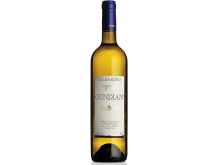
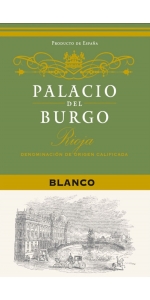
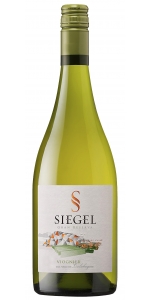
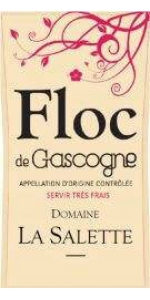
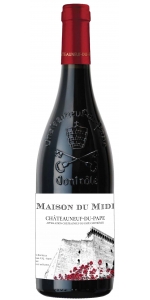
-150x300.jpg)
